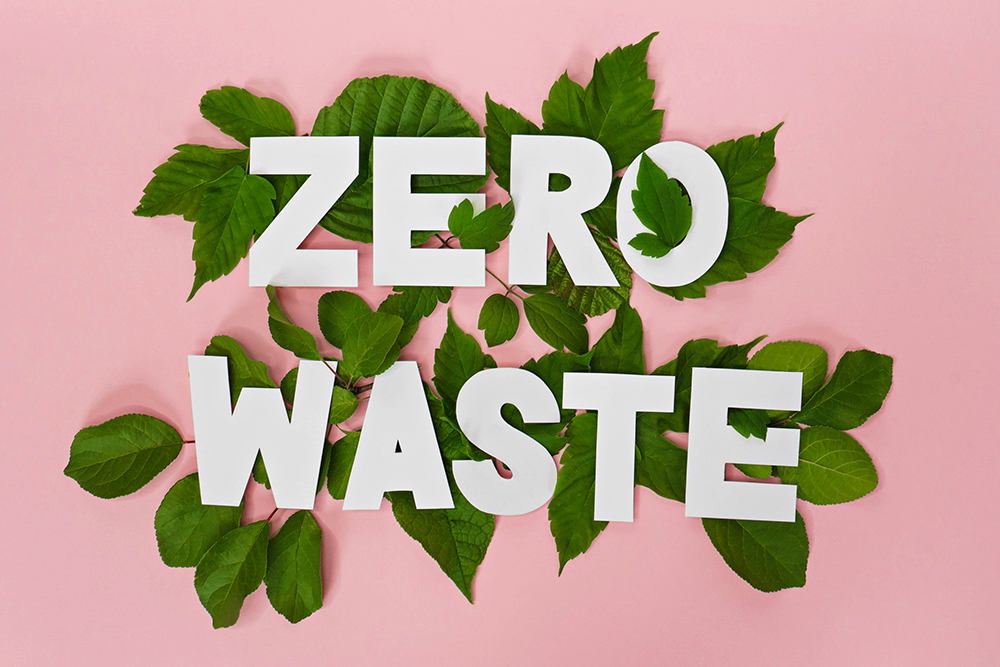The year 2020 is marked by pandemics and the fight against the virus. However, there are still voices that the fight for the environment cannot be forgotten or postponed, because we are still in the middle of a global ecological disaster.
One of the major challenges is to reduce the large amount of used plastic packaging. Apart from testing various types of biodegradable substances, many marketers are also considering introducing reusable packaging.
A solution that has been present on the market for a long time is systems in which the refill product is available in bags or large resealable containers. This type of solutions can be found most often in the Household or Hygiene (liquid soaps) category, but at present this trend is also entering the Beauty category.
On October 28, P&G announced the introduction of a reusable packaging system in 2021 with additions for its leading brands Head & Shoulders, Pantene, Herbal Essences and Aussie.[1] The system consists of a 100% reusable aluminium bottle and recyclable refill bags, which have 60% less plastic than standard packaging.
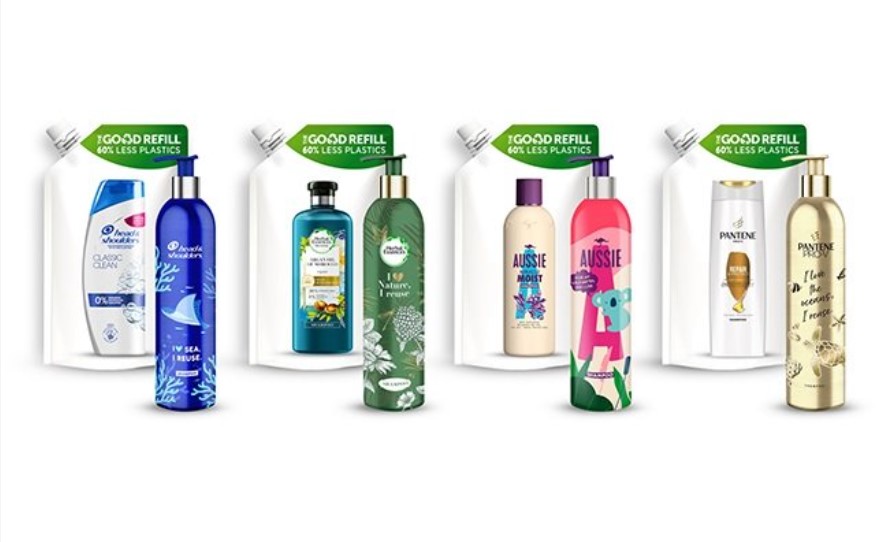
In the face cream category in the UK, P&G is testing simple refill jars in which refill pods can simply be placed.[2] The offer is available only on Amazon.
However, a complete novelty in the case of mass products distributed in drugstores and supermarkets are innovative dispensing systems from which reusable packaging can be directly replenished. Henkel tested this type of solution at the beginning of the year in the Rossmann chain in the Czech Republic.[3] The Nivea brand, this time in Germany, was also testing re-filling stations for shower gel.[4]
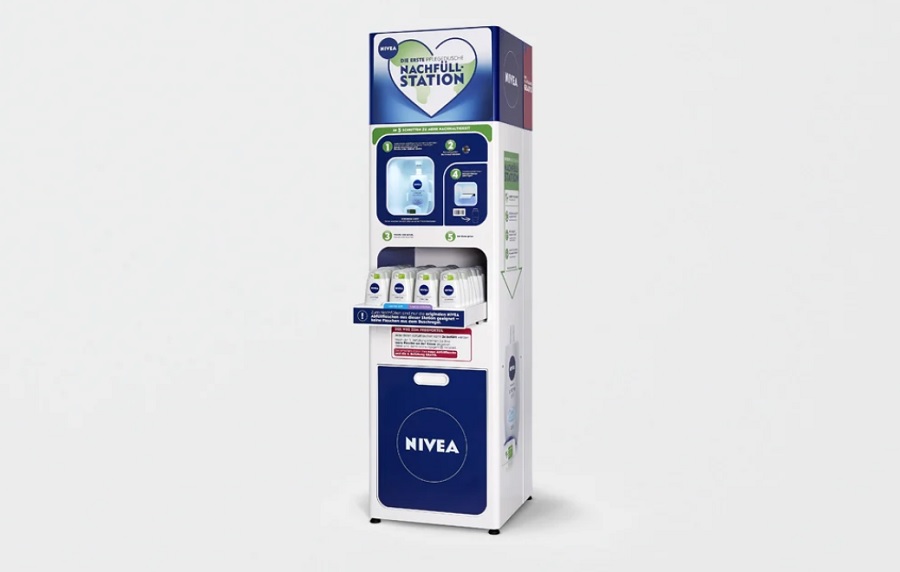
Unilever joins this esteemed group, which is testing as many as three different solutions in Asda’s Middleton[5] supermarkets in the United Kingdom: contactless filling machines, pods for use at home and self-service containers – although cosmetics and personal care brands will only be available through the former.
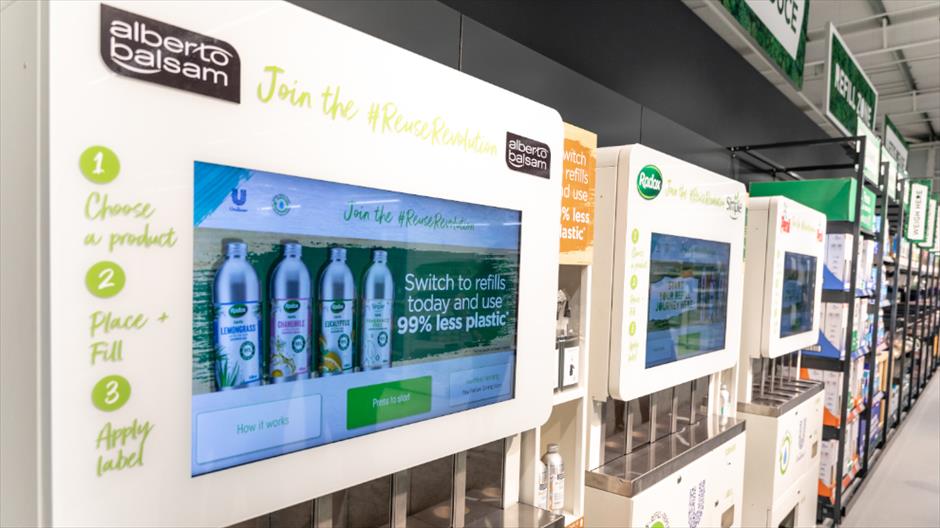
In Poland, on the mass market, consumers can find refilling stations for reusable packaging in Rossmann and Carrefour.
On June 15, in cooperation with the OnlyBio brand, Rossmann opened the first in Poland automated and original disinfection system, refill station[6] in Manufaktura in Lodz.
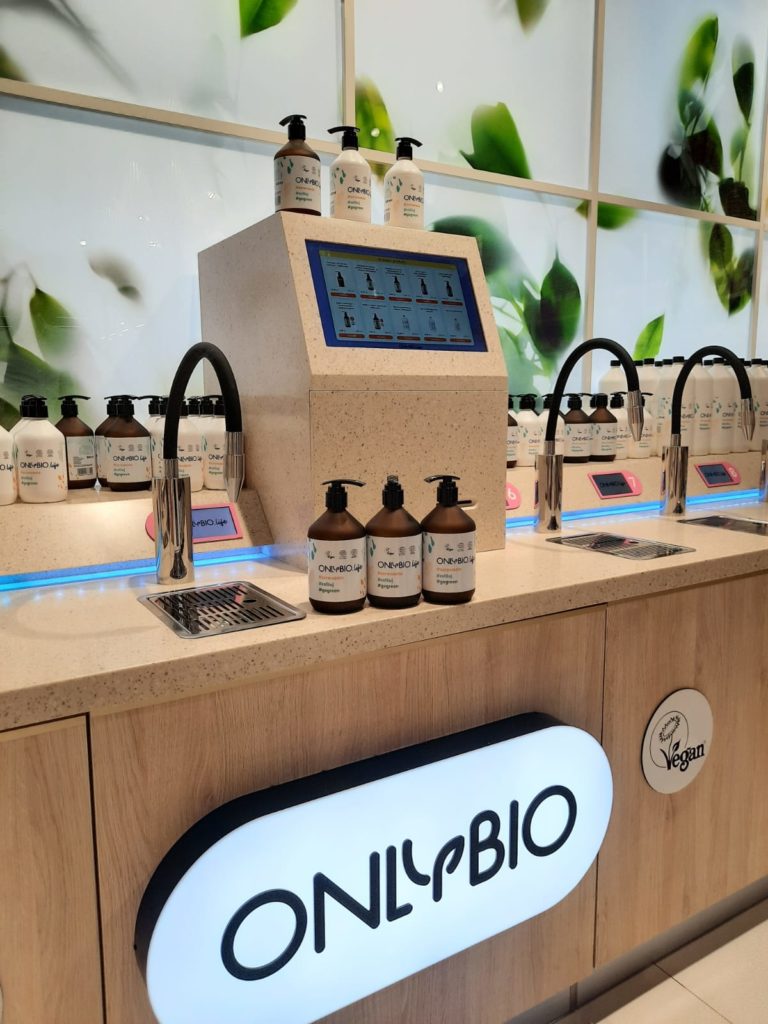
While Carrefour entered into cooperation with the Yope brand in the BIO format.[7] Refilling stations are available in Warsaw and Wrocław.
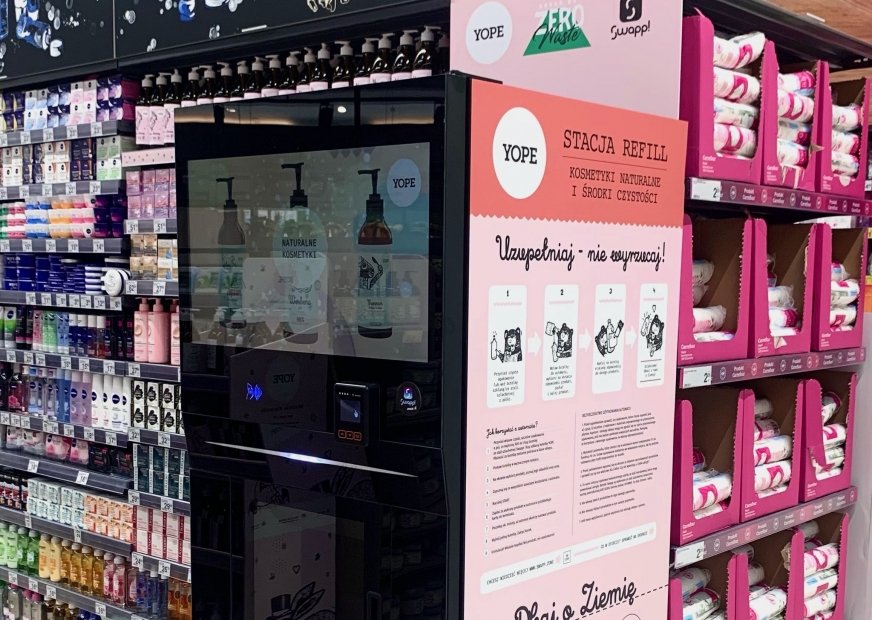
Does such a concept really have a chance at success for the mass consumer?
We have used our proprietary The Street quality survey to get to know consumers’ opinions.
The Street is an online research community of the Publicis Groupe group, with a form of a social network where moderated discussions are conducted. The forum’s participants are 107 people aged 18-62, from all over Poland, with a minimum vocational education. The discussion about supplementing cosmetics in drugstores was attended by 52 people.
Some of our respondents did not know, have never heard about the idea of zero waste. Others claim that they associate the idea, but it is not very well known among the general public, not enough is said about it.
People who like the idea of zero waste declare that its advantages are: generating less waste, wasting less products, choosing the amount of the product, saving money, protecting the environment, using products “until they are used up”.
Those who like the idea of zero waste point out that it is difficult to convince people about it due to the current lifestyle and lack of understanding of the idea but even partial involvement in it can bring beneficial effects and evoke reflection on consumerism today.
The drawbacks of the zero waste idea mentioned by the respondents are: the effort that has to be made to get involved in the idea to change one’s habits and a small number of stores allowing one to buy according to zero waste, the lack of profit from such a lifestyle, complicated and discouraging ideas for zero waste activities.
According to the respondents, the advantages of the idea are: reduction of plastic consumption, reduction of waste, reuse of packaging, taking care of the environment, lower prices of products (payment only for the product, not for the packaging), possibility to choose the amount of the product (e.g. a sample instead of the whole package), supporting eco-brands on a mass scale (as already mentioned in the OnlyBio article), the possibility to test the scent of the cosmetic before buying it.
Many people were convinced of the idea of machines for replenishing cosmetics in drugstores, but they noticed many uncertainties and fears… Few were definitely against the idea.
What raises fears was the complicated operation of the machines, the lack of being sterileness, both of the dispensers and their own packaging, the clutter around the machines, their potential failure rate and the related temporary lack of availability of products or their shortage. Respondents also note that the variety of products available in dispensers may be rather limited. Some suggest that a drugstore employee should oversee and help with the use of machines.
As far as packaging is concerned, apart from the lack of sterileness, respondents are bothered by the necessary to carry them. Self-filling may result in the wrong choice of product, the under or over filling of the packaging.
There have been voices suggesting that people who would sell refilled cosmetics on the Internet at a standard price could commit fraud.
Respondents would be happy to use such machines if they were in their favourite drugstore, they were not complicated to use and safety and sterileness would be ensured.
An important element is the price of the offered cosmetics, which should be the same or even lower than those sold in packaging, and the availability of favorite brands.
The guarantee of product quality is also important.
People who would use machines would do so out of curiosity, out of the desire to be eco-friendly, some would decide to use only machines offering products with a long expiration date (e.g. washing detergents).
Few who are not interested in using machines explain this by the reluctance to carry empty packaging, the certainty of a small difference in price between a cosmetic in its original packaging and a cosmetic from the machine, and the fact of buying cosmetics over the Internet, not in stationary stores.
Doubts related to the use of these types of solutions during the pandemic, when maintaining sterileness is even more important, were present among the responsdents.
Thus, we can see that the concept, although appreciated for its zero-waste innovation, has many important limitations in its daily use. In the context of the mass scale of use, the barriers related to the availability of a wide range of products, sterileness and a more complicated way of use, can be an element that stunts the development of this branch of the Beauty industry. However, it can still be a perfect complement to the basic offer of drugstores aimed at a more conscious consumer, using symbiosis with local and/or boutique brands.
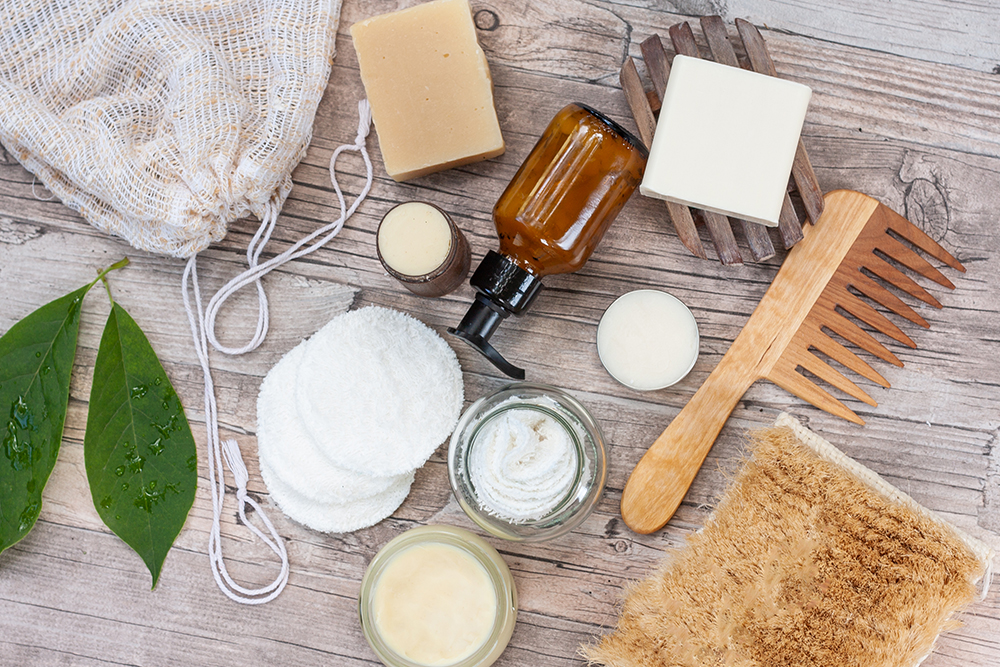
An alternative to mass brands are systems consisting of a proper container and biodegradable complementary packaging. They remove many of the barriers mentioned above and are certainly also easier to implement from the manufacturer’s point of view. We hope that soon such solutions will also be widely available on the Polish market.
Sources
[1] https://www.globalcosmeticsnews.com/now-pg-beauty-launches-refill-system/
[2] https://www.cosmeticsdesign-europe.com/Article/2020/08/13/Proctor-Gamble-trials-refill-pods-for-Olay-skin-care-on-Amazon-in-the-UK?utm_source=newsletter_daily&utm_medium=email&utm_campaign=13-Aug-2020
[3] https://finanse.wp.pl/szampon-do-wlasnego-pojemnika-trwaja-testy-moze-czas-na-polske-6466937208313473a?nil=
[4] https://www.globalcosmeticsnews.com/nivea-launches-refill-station-for-shower-gel/
[5] https://www.globalcosmeticsnews.com/unilever-launches-its-biggest-refill-trial-in-europe/
[6] https://wirtualnekosmetyki.pl/-newsy-producenci/onlybio-ze-stacja-refilli-w-rossmannie-w-lodzkiej-manufakturze
[7] https://www.wiadomoscikosmetyczne.pl/artykuly/we-wroclawskim-carrefour-bio-stanal-drugi-refillom,66196

